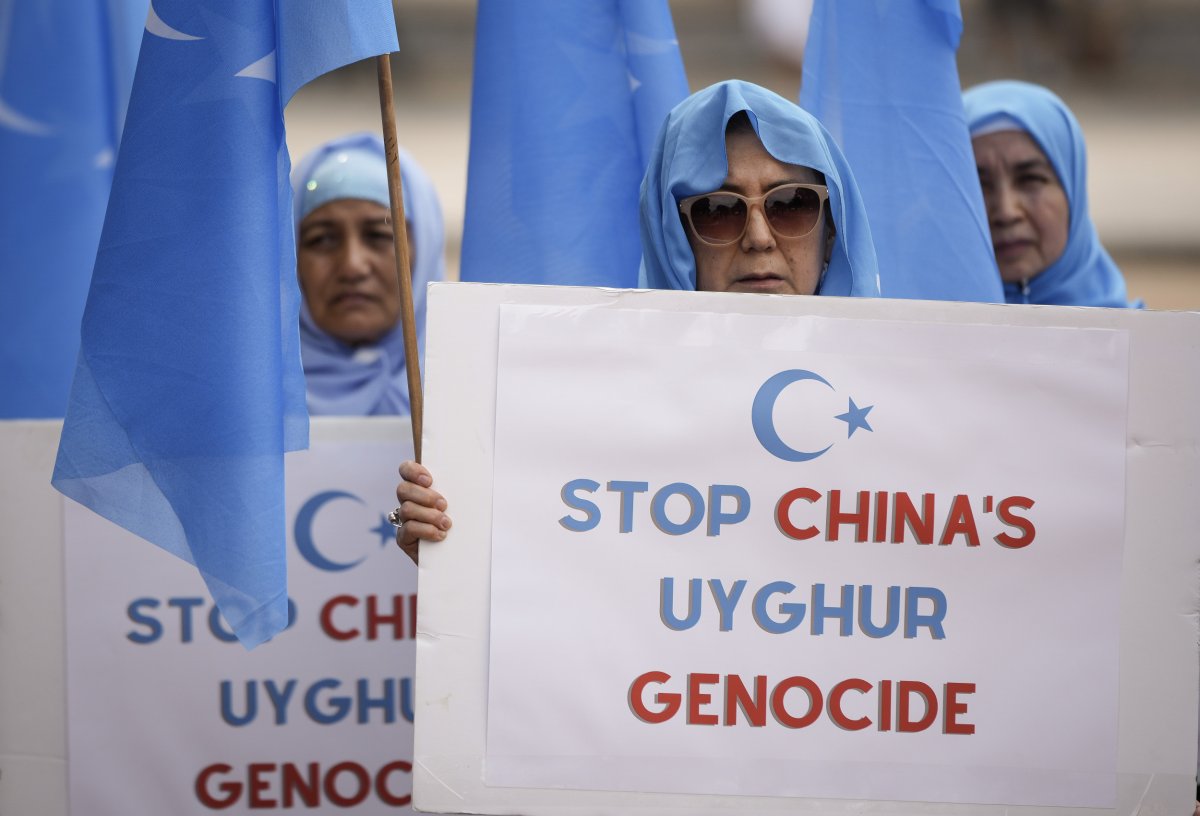In August, Bloomberg reported what we at the Human Rights Foundation already knew: The Chinese Communist Party (CCP) was sending in bots to attack our award-winning Uyghur Forced Labor Checker to deter you from downloading it and discovering the truth behind where your clothes are made and, more importantly, who makes them.
That's what our Google plug-in does—it lets you know when your shopping cart might be filled with items made by one of the 1.5 million Uyghurs the CCP has forced into concentration camps and asks you to think twice about your purchases.
That dress you're pining over from New York Fashion Week? It was made by a 16-year-old girl whose family doesn't know where she is or if she is even alive. That T-shirt Gigi Hadid wore on the runway? Made by a man in his 50s who has been tortured, raped, and is under constant surveillance. That coat you saw someone wearing to the afterparty? Made by a woman who used to be a teacher but is now being forced to eliminate her identity as a Uyghur Muslim.
The Uyghur people have their own language, their own culture, and their own identity distinct from the Han Chinese. The CCP is trying to erase their identity, and they're doing so by subjecting them to political indoctrination and grave human rights abuses. They are "reeducated" and made to learn Mandarin Chinese. They are forced to have abortions, use intrauterine devices, and receive sterilizations. And they are mandated to work non-stop with little to no pay. Most notably, picking cotton and working in clothing factories.

The CCP doesn't want you to know these things. In fact, they do everything in their power to ensure you don't by silencing activists and persecuting their families. The first and most obvious reason is that they're trying to eliminate the entire Uyghur population and want to do so without any backlash. And the second is that they have ties to major Western fashion brands, and they don't want that to change.
Do you see the connecting thread?
One in five pieces of cotton clothing worldwide is linked to Uyghur forced labor. Either Uyghurs were forced to pick the raw material, the cotton, or they cut the fabric and made the clothes that you are wearing.
Fast fashion brands like Shein, Nike, Zara, and many others, meanwhile, have been in the spotlight due to their use of Uyghur forced labor. Consumers have boycotted these brands. They have been ridiculed on social media and in the news. And mass protests have occurred to raise awareness of their supply chain.
But you will likely see a Uyghur original on the runway in New York this week. That's because high-end and luxury brands have, for the most part, gone under the radar when it comes to cotton picked by forced labor—until now.
The luxury fashion industry is no stranger to mishaps, criticism, or scandals. But when it comes to forced labor, they're trying to skirt responsibility—even as brand representatives insist it won't be "tolerated." They simultaneously admit when pressed they don't source their own raw materials. So how could they possibly know where it comes from?
Blissful ignorance is appalling when lives are at risk.
Democratic governments worldwide have called the CCP's actions a genocide. But their responses and efforts have been lackluster. The U.S. enacted the only legislation in the world that addresses this issue: the Uyghur Forced Labor Prevention Act (UFLPA). The UFLPA was enacted in 2022 and prohibits goods produced in the Uyghur region from being sold in the U.S. unless there's clear and convincing evidence that they weren't picked by slaves.
Yet clothes made by Uyghurs continue to be sold in the U.S. en masse. There's practically a Zara on every block in New York City. Moreover, for an individual shipment to trigger the reporting requirement, the amount has to exceed $800. So that $200 Shein order you just bought won't get flagged.
This means it's entirely up to you, the consumer, to demand to know where and how your clothes are made.
Don't be fooled by the pretty colors, sparkles, or the newest trend unveiled during New York Fashion Week. It's not enough to live by your values; you must wear them, too. Lives depend on it.
Claudia Bennett is a legal and program officer at the Human Rights Foundation.
The views expressed in this article are the writer's own.
Uncommon Knowledge
Newsweek is committed to challenging conventional wisdom and finding connections in the search for common ground.
Newsweek is committed to challenging conventional wisdom and finding connections in the search for common ground.





